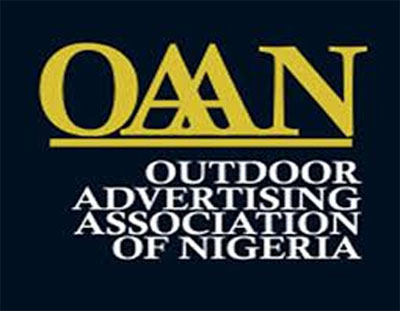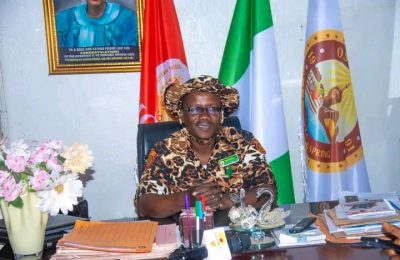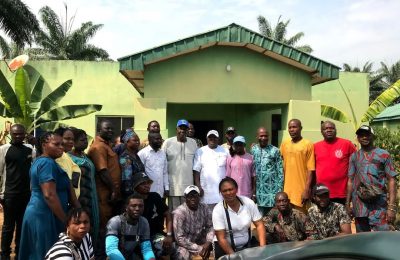

The announcement by the Heads of Advertising Sectoral Group (HASG) distancing the group from moves by the Out-of-Home Advertising Association (OAAN) to establish a Chartered Out-of-Home Media Practitioners Council of Nigeria has continued to dominate discussions among stakeholders in the nation’s advertising ecosystem.
HASG, comprising OAAN, Media Independent Practitioners Association of Nigeria (MIPAN), Association of Advertising Agencies of Nigeria (AAAN), Broadcasting Organisation of Nigeria (BON) and Experiential Marketers Association of Nigeria ( EXMAN) had, in a letter dated July 31, 2024, signed by its president, Lanre Adisa, expressed surprise that despite “representing the entirety of the marketing communications ecosystem,” the group was never taken into confidence by OAAN regarding the bill calling for the establishment of a chartered body for the sector.

The group stated that while it ‘empathised’ with the association, it would however, distance itself from the bill since it believed the existing extant regulatory apparatus set up by the government was robust enough to accommodate and respond to emerging concerns.
HASG also expressed the fear that duplicating or splintering the existing regulatory framework would weaken rather than strengthen the marketing communications industry and further increase its operational costs substantially.
However, in reaction to the HASG’s letter, the leadership of OAAN expressed dismay that the group, which the sectoral body remains a substantial part of, could take such decision without its input.
While insisting the association never initiated the bill, OAAN’s president, Mr Sola Akinsiku, however, expressed members’ full support for the initiative.
According to him, the bill has become imperative going by the not-too-pleasant fate befalling the OoH sector in Nigeria.
In one of the communications sighted by Nigerian Tribune to a critical stakeholder in the industry, the OAAN boss had insisted the proposed chartered status is meant to bring sanity into the Out-of-Home media ecosystem in the country.
Out-of-Home media assets owners, he stated, continue to grapple with challenges, especially in the hands of government departments that claim to control the practice.
He cited the experiences of practitioners in some states such as Kaduna, Lagos, Abuja and Enugu, where investments running into millions of naira had been lost in the past due to the high-handedness of the regulatory agencies in the states.
Akinsiku believes that if passed into law, the bill will go a long way in stemming the destruction of assets in the sector.
“We also know that a lot of charlatans exist in the business. A situation where the number of unregistered billboard owners is far higher than the registered ones is not good for the space. I think the bill is also seeking an end to such practice. Anybody that must practise advertising would have to be certified by the proposed council,” he added.
However, there are pertinent question on the lips of many in the industry begging for answers.
For instance, why the clamour for another regulatory body for the sector, when there already exists one regulating the entire advertising ecosystem in the form of ARCON?
What happens to the apex regulatory body in the industry, ARCON, in the event of the bill eventually sailing through?
Besides, how feasible is this development, especially at this time when the Federal Government is under pressure to implement the Oronsaye report? What happens to the state regulatory agencies and even local government council areas, which presently seem to be making headway in its fight for financial autonomy? Does this not amount to some added financial burdens on members since the new development is likely to come with some other financial implications? How would the association address the concerns of industry stakeholders regarding the likely ‘splintering’ and fragmentation this development may bring within the industry?
Interestingly, the man at the helm of affairs of the OOH sector sees the fears as not unexpected albeit, unfounded. New developments or reforms, he stated, have a way of eliciting fresh fears though such fears may not be genuine.
According to him, the law is not coming to disrupt the system but to check charlatanism and put practitioners’ fate in their hands.
“ARCON remains the apex regulatory body and we still belong to the body,” he stated.
The OAAN boss argued that the OoH practice stands on two legs – the advertising leg and the other dealing with the platform/locations/sites/assets.
Akinsiku argued that while ARCON has been effective in the management of the advertising leg, the non-advertising leg has been a cause of worry and challenge to business sustainability over the years.
He assures OAAN’s relationship with HASG, in spite of the group’s opposition to the bill, still stands.
“We remain a member of the group and we are not in a hurry to leave,” he added.
The OAAN boss also allays fears of a fragmentation in the industry, which the proposed body may induce. According to him, rather than divide the industry, the proposed chartered body, which the association is seeking, will consolidate the gains so far recorded in the advertising ecosystem.
He believes the bill will bring order to the activities of local governments and the state governments in OoH practice since it will remove the ambiguity/inconsistencies in controls from local governments and state governments.
As reassuring as those words may sound, not a few industry stakeholders believe OAAN still needs to do a lot more to get the buy-in of stakeholders. Interestingly, how it goes about doing this, they argue, will go a long way in determining the success or otherwise of the project.
READ ALSO: Oyo LG chairmen dissociate from ALGON, to operate under new association








